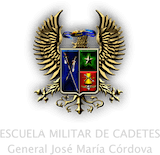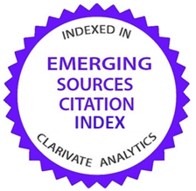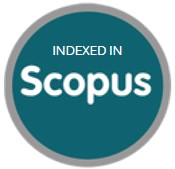La guerra total de Bolívar
Guerra, política y revolución en la era de la independencia
DOI:
https://doi.org/10.21830/19006586.794Palabras clave:
guerra, independencias, Nueva Granada, política, revolución, siglo XIXResumen
Este artículo propone introducir el concepto de guerra total para estudiar la independencia de América Latina en las décadas de 1810 y 1820, pues se argumenta que la guerra total no fue un fenómeno exclusivamente noratlántico, sino una experiencia que también se manifestó a principios del siglo XIX en el Virreinato español de Nueva Granada. Para demostrarlo, se analiza la militarización social provocada por las reformas ilustradas del siglo XVIII, el impacto de la revolución política en el Atlántico y el papel de la religión en la creación de un enemigo que debía ser exterminado. Se concluye con la singular coexistencia de diferentes formas de guerra regular e irregular, y el hecho de que la guerra total no fue consecuencia de la acción estatal, sino el punto de partida para la construcción del Estado.
Descargas
Referencias bibliográficas
Adelman, J. (2015). Una era de revoluciones imperiales [An era of imperial revolutions]. In P. Gonzalez (Ed.), Independencias Iberoamericanas. Nuevos problemas y aproximaciones. Fondo de cultura económica.
Bar-Kochva, B. (1989). Judas Maccabaeus: the Jewish Struggle Against the Seleucids. Cambridge University Press.
Bell, D. (2007). The First Total War. Napoleon’s Europe and the Birth of Warfare as We Know It. Houghton Mifflin Company. https://doi.org/10.4000/ahrf.11387
Bell, D. Crépin A., Drevillon, H., Forcade, O., and Gainot, B. (2011). Autour de la guerre totale [Around the total war]. Annales historiques de la Révolution française, (366), 153-170. https://doi.org/10.4000/ahrf.12236
Bencomo, H. (n.d.). Fundación empresas Polar, Domingo de Monteverde. Diccionario de Historia de Venezuela, ed. 1997. https://bibliofep.fundacionempresaspolar.org/dhv/entradas/m/monteverde-domingo-de/
Bled, J. P. & Deschodt, J. P. (2017). De Tannenberg à Verdun. La Guerre Totale [From Tannenberg to Verdun. The Total War]. Editions SPM.
Bock, U. (2013). Entre “españoles” y “ciudadanos”: las milicias de pardos y la transformación de las fronteras culturales en Yucatán, 1790-1821 [Between "Spaniards" and "Citizens". Brown Militias and the Transformation of Cultural Boundaries in Yucatan, 1790-1821]. Secuencia (87), 12. http://www.scielo.org.mx/scielo.php?script=sci_arttext&pid=S0186-03482013000300001
Bolivar, S. (2015). Carta de Jamaica 1815-2015. The Presidential Commission for the commemoration of the bicentennial of the Charter of Jamaica (Ed.). Presidency of the Bolivarian Republic of Venezuela. Colección unidad nuestra americana. (Original work 1815). https://albaciudad.org/wp-content/uploads/2015/09/08072015-Carta-de-Jamaica-WEB.pdf
Bolivar, S. (personal communication, March 11, 1825). Correspondencia oficial, Carta de Simón Bolívar para el General de División Francisco de Paula Santander. Documento 10189. http://www.archivodellibertador.gob.ve/escritos/buscador/spip.php?article9932, consulted on 19 November 2018.
Borges, A. (1967). Don Domingo de Monteverde y otros criollos oriundos de Canarias, en la Revolución americana (1813) [Don Domingo de Monteverde and other Creoles from the Canary Islands in the American Revolution (1813)]. Anuario de estudios atlánticos, 1(13), 183. http://anuariosatlanticos.casadecolon.com/index.php/aea/article/view/170/170
Bushnell, D. (2007). Simón Bolivar. Proyecto de América. Universidad Externado de Colombia.
Capdevila, L. (2007). Une guerre totale, Paraguay 1864-1870. Essai d’histoire du temps présent. [A total war, Paraguay 1864- 1870]. Presses Universitaires de Rennes.
Cardona Zuluaga, P. (2015). Creer en la Independencia. El catecismo o Instrucción popular de Juan Fernández de Sotomayor [Believe in Independence. The Catechism or Popular Instruction of Juan Fernández de Sotomayor]. Araucaria, Revista Iberoamericana de Filosofía, Política y Humanidades, 17(34), 397-410. https://doi: 10.12795/araucaria.2015.i34.20
Carrera, G. (2008). El culto a Bolivar; esboso para el estudio de la historia de las ideas en Venezuela [The cult to Bolivar] (p. 39). Editorial Alfa.
Carrera, G. (1972). Boves: aspectos socio-económicos de la Guerra de Independencia [Boves: socio-economic aspects of the War of Independence]. Academia Nacional de la Historia.
Colmenares, G. (1989). Relaciones e informes de los gobernantes de la Nueva Granada [Relationships and reports of the New Granada’s governors]. Biblioteca del Banco Popular (134), 252-253.
Colmenares, G. (2008). Las Convenciones contra la cultura. Ensayos sobre la historiografía hispanoamericana del siglo XIX. [Conventions against culture. Essays on nineteenth century Hispano-American historiography]. La Carreta Editores.
Proyecto de ordenanza para la milicia nacional local de la península e islas adyacentes [Ordinance project for the local national militia of the peninsula and adjacent islands.]. (1822). Imprenta de D. Tomas Alban y Compañía. British Museum Digital Collection, 6 (73). https://legishca.edu.umh.es/1822/06/29/1822-06-29-ordenanza-para-la-milicia-nacional-local-de-la-peninsula-e-islas-adyacentes/
Conde, J. (2019). De esclavos a soldados de la patria: el Ejército Libertador como garante de la libertad y la ciudadanía [From slaves to soldiers of the homeland: the Liberation Army as guarantor of freedom and citizenship]. Co-herencia, 16 (31). 84, 96. https://doi.org/10.17230/co-herencia.16.31.3
Conde, J. (1836). Proclamas del Libertador Simón Bolivar compiladas por Juan José Conde [Proclamations of the Liberator Simón Bolivar compiled by Juan José Conde]. Imprenta de “El Venezolano” M.J. Rivas, Calle del Comercio.
Acts of the Electoral and Constituent College of Cundinamarca (1811) Art. 1 and 2 Title IX, On the Armed Forces, Acts of the Most Serene Constituent and Electoral College of the Province of Cundinamarca. (1810) [Corte Constitucional de la República de Colombia (n.d.). Actas del Colegio Electoral y Constituyente de Cundinamarca (1811) Art. 1 y 2 Titulo IX, De la Fuerza Armada, Actas del serenísimo colegio constituyente y electoral de la provincia de Cundinamarca. (1810)]. Asambleas constituyentes de la independencia, Actas de Cundinamarca y Antioquia (1811-1812). D. Gutierrez (Ed). Biblioteca Nacional de Colombia, Fondo Pineda, 244, (no. 297), vdfuI-367, no. I. 24. http://www.suin-juriscol.gov.co/clp/contenidos.dll/Constitucion/30020108?fn=document-frame.htm$f=templates$3.0
Chickering, R. (1999). Total War: The Use and Abuse of a Concept. In M. F. Boemeke, R. Chickering and S. Förster (Eds.), Anticipating Total War. The German and American Experiences, 1871-1914. German Historical Institute and Cambridge University Press. https://doi.org/10.1017/CBO9781139052511
Daudet, L. (1918). La guerre totale [The total war]. Nouvelle librairie nationale, Bibliothèque nationale de France. https://catalogue.bnf.fr/ark:/12148/cb340432272
Decreto de guerra a muerte [War to death decree]. (1813). Catálogo Digital del archivo del Libertador Simón Bolivar Documento 220. Gobierno Bolivariano de Venezuela. bit.ly/3lpfDj6
Demélas, M. D. & Saint-Geours, Y. (1987). La vie quotidienne en Amérique du Sud au temps de Bolivar, 1809-1830 [Daily life in South America at the time of Bolivar, 1809-1830]. Hachette.
Demélas, M. D. & Saint-Geours, Y. (1988). Jerusalén y Babilonia. Religión y política en el Ecuador 1780-1880 [Jerusalem and Babylon. Religion and politics in Ecuador 1780-1880]. Corporación Editorial Nacional/Instituto Francés de Estudios Andinos.
Demélas, M. D. (2004). Annick Lempérière, Entre Dieu et le Roi, la République: México, XVIe-XIXe siècles [Annick Lempérière, between God and the King, the Republic: Mexico City, sixteenth to nineteenth centuries]. Les Belles Lettres. https://doi.org/10.4000/assr.3557
Díaz, J. D. (1829). Recuerdos sobre la rebelión de Caracas [Memories of the Caracas rebellion]. Imprenta de D. León Amarita, Plazuela de Celenque, Antinque archive. Digitized bibliographic collection of the University of Seville. http://www.cervantesvirtual.com/obra/recuerdos-sobre-la-rebelion-de-caracas
Encina, F. A. (1961). Bolivar y la independencia de la América española: Independencia de Nueva Granada y Venezuela [Bolivar and the independence of Spanish America: Independence of New Granada and Venezuela]. Nascimiento.
Encyclical Etsi Iam Diu León XII. (1824). Memoria Política de México. bit.ly/2Izv6hN
Espinosa, J. M. (1876). Memorias de un abanderado: Recuerdos de la patria boba 1810-1819 [Memoirs of a flag-bearer: Memories of the patria boba 1810-1819]. Editorial Minerva, Publicaciones del Ministerio de Educación nacional.
Etsi Longissimo Terrarum de Pío VII. (1816). Fraternidad sacerdotal San Pio X. November 2016. bit.ly/36s8hFk
Falcón, F. (2003). El cadete de los Valles de Aragua: Evaluación del contexto de la primera formación militar de Simón Bolivar (1797-1802) [The cadet of the Valleys of Aragua: Evaluation of the context of the first military training of Simón Bolivar (1797-1802)]. Anuario de Estudios Bolivarianos Bolivarium, 10 (40), 33-56.
Falcón, F. (2009). El sentido de un legado: la relación entre el pensamiento militar de Raimondo Montecuccoli y Simón Bolivar [The sense of a legacy: the relationship between the military thought of Raimondo Montecuccoli and Simón Bolivar]. Anuario de estudios bolivarianos (N16).
Fussell, P. (1989). Wartime, Understanding and Behaviour in the Second World War. Oxford University Press.
Gómez, A. (2006). La Revolución Haitiana y la Tierra Firme hispana [The Haitian Revolution and the Hispanic Mainland]. Nuevo Mundo Mundos Nuevos, Debates [online]. https://doi.org/10.4000/nuevomundo.211
Gómez, A. (2013). Le spectre de la revolution noire. L’impact de la révolution haïtienne dans le monde atlantique, 1790-1886 [The spectre of the Black revolution. The Impact of the Haitian Revolution in the Atlantic World, 1790-1886]. Presses universitaires de Rennes. https://doi.org/10.4000/mcv.5919
Guerra, F. X. (1992). Modernidad e independencias. Ensayos sobre las revoluciones hispánicas [Modernity and Independence. Essays on the Hispanic revolutions]. Mapfre. https://rodrigomorenog.files.wordpress.com/2012/01/guerra-modernidad-e-independencias-1992.pdf
Guerra, F. X. (2003). Políticas sacadas de las sagradas escrituras [Policies from the holy scriptures]. In M. Quijadas & J. Bustamante (Eds.), Elites intelectuales y modelos colectivos. Mundo ibérico (siglos XVI-XIX). Consejo superior de investigaciones científicas, Instituto de Historia, Departamento de Historia de América.
Guiomar, J. Y. (2004). L’invention de la guerre totale: XVIII-XXe siècle [The invention of the total war: XVIII-XXth century]. Editions du Felin/Broché.
Gutiérrez C. (2009). La historiografía contemporánea sobre la independencia en Centroamérica [Contemporary historiography on the independences in Central America]. Nuevo Mundo Mundos Nuevos [online]. https://doi.org/10.4000/nuevomundo.54642
Gutierrez, D. (2010). Un nuevo Reino. Geografía política, pactismo y diplomacia durante el interregno en la Nueva Granada (1808-1816) [A New Kingdom. Political geography, pactism and diplomacy during the interregnum in New Granada (1808-1816)]. U. Externado de Colombia.
Harvey, R. (2000). Liberators: Latin America’s Struggle for Independence, 1810-1830. The Overlook Press.
Hébrard, V. (1996). Le Venezuela indépendant: une nation par le discours, 1808-1830 [The independent Venezuela. A nation through speech. 1808-1830]. Editions L’Harmattan.
Hébrard, V. (1996). Le Venezuela indépendant: une nation par le discours, 1808-1830 [Independent Venezuela: a nation through discourse, 1808-1830]. L’Harmattan.
Hébrard, V. (2015). Lógicas de descalificación del enemigo político y división partidaria. Venezuela, Siglo XIX [Logics of disqualification of the political enemy and partisan division. Venezuela, nineteenth century]. Independencias iberoamericanas. Nuevos problemas y aproximaciones, 307. In P. González Bernaldo de Quirós (Ed.). Fondo de Cultura Económica. https://hal.univ-lille.fr/hal-01744516
Hébrard, V. (2016). Justicia “excepcional” y lógicas de radicalización durante la primera pacificación de Venezuela (1812-1814) [“Exceptional” justice and logics of radicalization during the first pacification of Venezuela (1812-1814)]. Revista de Indias, 76(266), 17-42. https://doi.org/10.3989/revindias.2016.001
Hobsbawm, E. (2003). Historia del siglo XX [History of the 20th century]. Crítica. https://cronicon.net/paginas/Documentos/Eric_Hobsbawm_-_Historia_del_Siglo_XX.pdf
Kuethe, A. (1978). Military Reform and Society in New Granada, 1773–1808 (p.38). University Presses of Florida. Center for Latin American Studies.
Lande, R. G. (2016). Psychological consequences of the American Civil War. McFarland.
Lecuna V. et al. (1929). Cartas del Libertador corregidas conforme a los originales. Mandadas publicar por el Gobierno de Venezuela presidido por el General J. V. Gómez, tomo I, 1799-1817 [Letters by the Liberator corrected according to the originals]. Lit. y Tip. del Comercio. bit.ly/3pGDcWX
Lecuna, V. (1955). Bolivar y el Arte Militar [Bolivar and the Military Art] (pp. 71, 116). The Colonial Press Inc.
Loi relative à la traite des Noirs et au régime des colonies [Law relating to the Black Trade and the Colonial Regime]. (1802). Archives Nationales d’Outre-Mer, May 20, Côte: FR ANOM 1COL. bit.ly/32SoOkE
Ludendorff, E. (1935). Der Totale Krieg [The Total War]. München, Ludendorffs Verlag.
Lynch, J. (2006). Simón Bolivar. A Life (pp. 12, 48-49, 282). Yale University Press.
Marchena, J. (1983). Oficiales y soldados en el ejército de América [Officers and soldiers in the American Army], 300-301. Escuela de Estudios Hispano Americanos.
McFarlane, A. (2008). Los ejércitos coloniales y la crisis del Imperio Español, 1808-1810 [The Colonial Armies and the Crisis of the Spanish Empire, 1808-1810], Historia Mexicana 10 (1), 229-285. https://www.redalyc.org/pdf/600/60011936006.pdf
Montoya, S. (1987). Milicias negras y mulatas en el Reino de Guatemala (Siglo XVIII) [Black and mulatto militias in the Kingdom of Guatemala (eighteenth century)]. Caravelle. Cahiers du monde hispanique et luso-brésilien, (49), 96. https://www.persee.fr/doc/carav_0008-0152_1987_num_49_1_2342
Moreno y Escandón, A. F. (1989). Estado del vireinato de Santafé, Nuevo Reino de Granada. Anales de la Universidad Nacional de los Estados Unidos de Colombia, 4(19), 34-96. https://revistas.unal.edu.co/index.php/analesun/article/view/12595
Morillo, P. (1826). Mémoires du General Morillo, Comte de Carthagène, Marquis de La puerta, relatifs aux principaux événemens de ses campagnes en Amérique de 1815 a 1821; suivis de deux précis de Don José Domingo Díaz,et du Géneral Don Miguel de la Torre [Memoirs of General Morillo, Count of Cartagena, Marquis of La Puerta, relating to the main events of his campaigns in America from 1815 to 1821] (p. 2, 42, 122, 123). E. P. Blosseville (Trans.). P. Dufort. Bibliothèque nationale de France (hereafter cited as BNF), Department of Philosophy, History and Human Sciences, 8-OL-549. (original 1820).
Ocampo López, J. (1989). El proceso político, militar y social de la independencia [The political, military and social process of independence]. Nueva Historia de Colombia. Planeta.
Pérez, T. (n.d.). Fundación empresas Polar, José Tomás Boves. Diccionario de Historia de Venezuela, ed. 1997. https://bibliofep.fundacionempresaspolar.org/dhv/entradas/b/boves-jose-tomas/
Phelan J. (1978). The People and the King. The Comunero Revolution in Colombia. University of Wisconsin Press. http://hdl.handle.net/2027/heb.00294.0001.001
Picaud-Monnerat, S. (2009). La réflexion sur la petite guerre à l’orée du XIXè siècle: l’exemple de Clausewitz (1810-1812) [The reflection on the small war at the beginning of the nineteenth century: the example of Clausewitz (1810-1812)]. Stratégique, Institut de Stratégie Comparée, 97-98 (5), 138.
Pietschmann, H. (1996). Las reformas borbónicas y el sistema de intendencias en Nueva España. Un estudio político administrativo [The Bourbon reforms and the system of intendancies in New Spain. A political-administrative study]. Fondo de Cultura Económica.
Pita, R. (2019). El armisticio de Trujillo: Azares y esperanzas de una vía de conciliación en las guerras de Independencia de Venezuela [The Trujillo Armistice: Chances and Hopes for a Conciliation Path in the Venezuelan Wars of Independence]. Revista de estudios latinoamericanos de la Universidad Pablo de Olavide de Sevilla, (9), 159-191. https://www.upo.es/revistas/index.php/americania/article/view/4362
Rabinovich, A. (2018). El cuerpo, las armas y el combate: hacia una antropología histórica de la Guerra [The body, Tthe weapons and the combat: towards a historical anthropology of war]. Diferencias. Revista de Teoría Social Contemporánea, 1(6), 89, 100-101.
Restrepo, J. M. (1858). Historia de la Revolución de la República de Colombia en la América Meridional [History of the Revolution of the Republic of Colombia in South America]. Imprenta de José Jacquin. http://hdl.handle.net/10554/77
Rimbaud, A. (1873). Une saison en enfer [A season in hell]. Alliance typographique.
Roscio, J. G. (1996). El triunfo de la libertad sobre el despotismo [El triunfo de la libertad sobre el despotismo] (pp. 91, 221-229). Printed edition of the Biblioteca de Ayacucho.
Scotti, V. (2004). La guérilla espagnole dans la guerre contre l’armée napoléonienne [The Spanish guerrilla in the war against the Napoleonic army]. Annales historiques de la Revolution Française, (336), 3.
Scheina, R. (2003). Latin America’s wars. The Age of Caudillo, 1791-1899. Brassey’s.
Schmitt, C. (1974). Der Nomos der Erde im Völkerrecht des Jus Publicum Europaeum [The Nomos of the Earth in the International Law of the Jus Publicum Europaeum,]. Duncker & Humblot.
Schmitt, C. (1975). Theorie der Partisanen. Zwischenbemerkung zum Begriff des Politischen [Partisan Theory. Intermediate Remark on the Concept of the Political]. Duncker und Humblot, 5.
Schmitt, C. (2014). Totaler Feind, totaler Krieg, totaler Staat 1937 [Total Enemy, Total War, Total State 1937]. Positionen und Begriffe. Im Kampf mit Weimar—Genf—Versailles, 1923-1939. Duncker & Humblot.
Serna, P. (2008). Commentary Comment penser la guerre totale sans la réduire à une guerre totalement française? Institute of History of the French Revolution of the University of Paris 1 Panthéon- Sorbonne. https://ihrf.univ-paris1.fr/fileadmin/IHRF/Centre_de_documentation/Controverses/Serna-Critique_de_Bell.pdf
Siso, G. (2012). La población de Venezuela: evolución, crecimiento y distribución geográfica [The Venezuelan population: evolution, growth and geographic distribution]. Terra Nueva Etapa 28 (43), 113. http://ve.scielo.org/scielo.php?script=sci_arttext&pid=S1012-70892012000100006
Sosa Abella, G. (2002). Fr. Joaquín de Finestrad. El vasallo instruido en el estado del Nuevo Reino de Granada y en sus respectivas obligaciones [The instructed vassal in the state of the Nuevo Reino de Granada and in the respective obligations], transcription and introduction by M. Gonzáles. Universidad Nacional de Colombia. https://repositorio.unal.edu.co/handle/unal/2946
Sotomayor, H. (1997). Guerras, enfermedades y médicos en Colombia [Wars, diseases and doctors in Colombia]. Escuela de Medicina Juan N. Corpas.
Television statement on the 198th anniversary of the battle of La Victoria, https://www.youtube.com/watch?v=0jFa6alV5ts, on Youtube, (2012, February 12).
Thibaud, C. (2006). Républiques en armes. Les armées de Bolivar dans les guerres d’indépendance du Venezuela et de la Colombie [Republics in arms. Bolivar’s armies in the wars of independence of Venezuela and Colombia]. Presses Universitaires de Rennes. https://doi.org/10.4000/cal.2159
Thibaud, C. (2007). Des républiques en armes à la république armée: guerre révolutionnaire, fédéralisme et centralisme au Venezuela et en Nouvelle Grenade, 1808-1830 [From republics in arms to armed republics: revolutionary war, federalism and centralism in Venezuela and New Grenada, 1808-1830]. Annales historiques de la Révolution française, (348), 75-76. https://doi.org/10.4000/ahrf.9073
Zapata, R. (2003). Los libros que leyó el libertador Simón Bolivar [The books read by the liberator Simón Bolivar]. Universidad Jorge Tadeo Lozano.
Descargas
Publicado
Cómo citar
Número
Sección

| Estadísticas de artículo | |
|---|---|
| Vistas de resúmenes | |
| Vistas de PDF | |
| Descargas de PDF | |
| Vistas de HTML | |
| Otras vistas | |
























